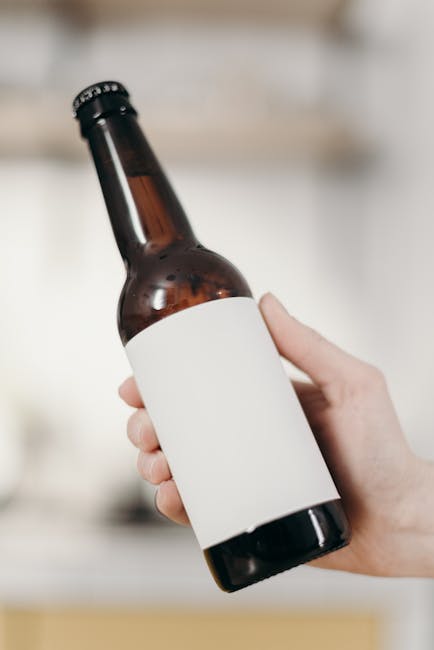The Essential Guide to Beer Business Licensing Requirements
If you’ve ever dreamed of running your own brewery, taproom, or beer distribution company, you’re likely well aware that diving into the beer business involves more than mere passion for brewing. One of the crucial steps in turning your beer dreams into reality is understanding the various beer business licensing requirements. This Essential Guide to Beer Business Licensing Requirements will help you navigate the often complex world of permits, rules, and regulations, ensuring that you’re well-prepared for your new adventure.
Why Licenses Matter in the Beer Business
Before we delve into the specifics of the licensing requirements, let’s establish why they are so important. Licensing not only ensures that you operate within the law but also protects consumers and upholds the quality and safety of the products they enjoy. Careful adherence to licensing also gives your business credibility, safeguarding your investment and enhancing your reputation within the community.
Types of Licenses You May Need
The specific licenses required for your beer business can vary based on your location and the nature of your operations. Here’s a breakdown of essential licensing requirements:
1. Federal Licensing
Alcohol and Tobacco Tax and Trade Bureau (TTB) Permit: At the federal level, businesses engaged in brewing or distributing beer must secure permits from the TTB. This often involves submitting a Brewer’s Notice, a lengthy application that includes schedules detailing your brewing operations, facilities, equipment, and labeling. The TTB review process can take several months, so factor this into your business planning.
2. State Licensing
Each state has its own regulations governing the alcohol industry. Typically, you’ll need one or more of the following licenses:
-
State Alcohol License: This applies to both manufacturers and retailers, allowing you to legally produce and sell beer. The requirements for obtaining this license can vary significantly from state to state.
-
Sales Tax Permit: Most states require any business that sells goods to obtain a sales tax permit, which allows you to collect sales tax from customers.
3. Local Licensing
Local jurisdictions often have their own sets of rules and requirements. This typically involves:
-
Zoning Permits: Your establishment must be located in a zone that permits alcohol sales. Checking with your local zoning board will clarify this before you commit to a location.
-
Health and Safety Permits: If you plan to serve beer on-site or provide food alongside your brews, ensure you comply with health department regulations, which may involve inspections and obtaining necessary permits.
-
Special Event Permits: Should you wish to participate in local festivals or events, you may need specific permits to serve alcohol at public venues.
Steps to Obtain Your Licenses
Navigating the licensure process can feel daunting, but with a structured approach, you can streamline the journey:
-
Research Requirements: Start by thoroughly researching the specific licensing requirements for your type of beer business, both federally and within your state and locality.
-
Prepare Documentation: Gather all necessary documents, which may include financial statements, an operational plan, and floor plans of your premises. Being detail-oriented here pays off.
-
Submit Applications: Submit your applications to the relevant authorities, ensuring that everything is accurate and comprehensive to avoid delays or setbacks.
-
Prepare for Inspections: In many cases, your facility will need to pass health and safety inspections. Take the time to ensure your establishment meets all necessary standards before these inspections.
-
Be Patient: The process might take time, given the thorough review involved. Use this waiting period to get your marketing strategies in place and start building relationships with suppliers and potential customers.
Frequently Asked Questions (FAQs)
What are the consequences of operating without a license?
Operating without the necessary licenses can lead to severe consequences, including hefty fines, closure of your business, or even legal action. Always ensure you have the required permits before starting operations.
How long does it typically take to obtain a TTB permit?
On average, the TTB permit process can take anywhere from 90 to 180 days. It’s best to apply early and stay on top of requirements to avoid unnecessary delays.
Are there local grants or programs to assist with licensing fees?
Yes! Many local governments and organizations offer grants or low-interest loans for new businesses, especially in the food and beverage industry. Check with your local chamber of commerce or small business development center to find available resources.
Can I apply for multiple licenses at once?
Yes, it’s often possible to apply for multiple licenses simultaneously. However, do keep in mind differing processing times and requirements.
Conclusion
Starting a beer business is an exciting venture, but it’s essential to navigate the maze of beer business licensing requirements carefully. This Essential Guide to Beer Business Licensing Requirements acts as a roadmap to help you understand what lies ahead. By securing the proper licenses and permits, you’re not only protecting yourself legally but also laying a strong foundation for your business.
Always stay informed about local laws and trends in the beer industry, as regulations can change. Don’t hesitate to reach out to fellow entrepreneurs, local business associations, and legal experts to build a knowledge base that will support your journey.
With the right approach and the essential licenses in hand, you’ll soon be able to share your love of beer with the world – and who knows? You might just create the next big sensation in the craft beer scene! Cheers to that!

